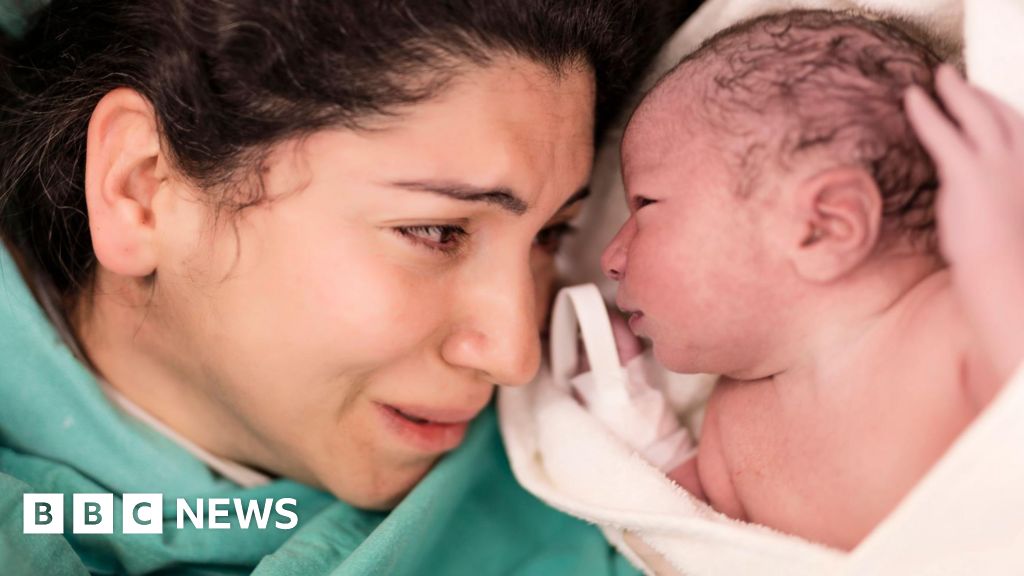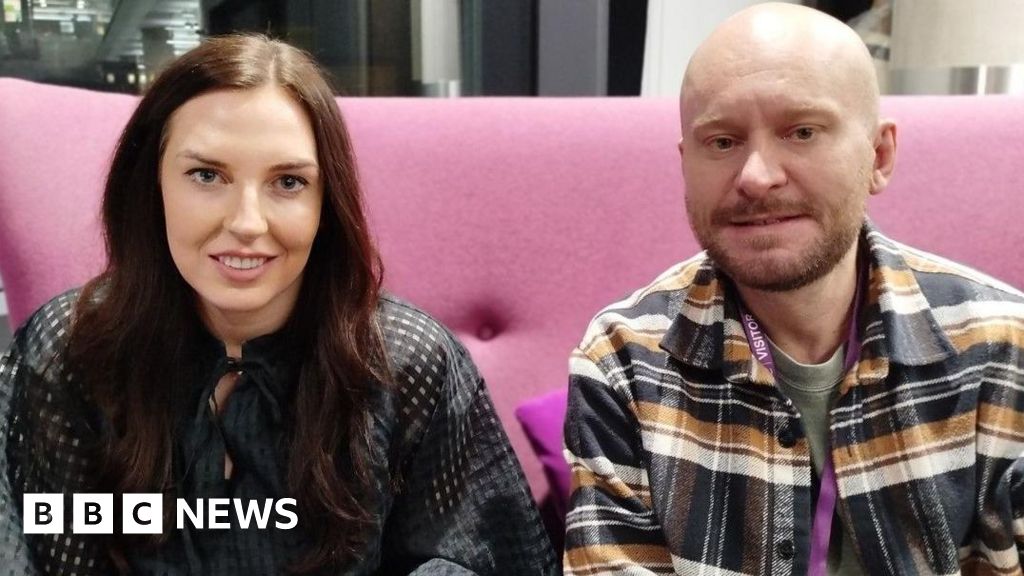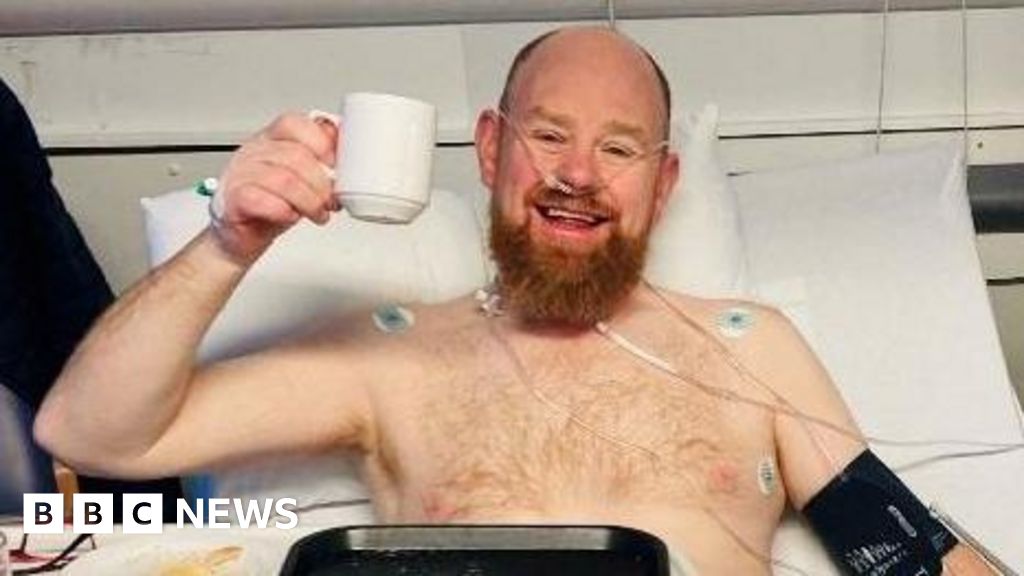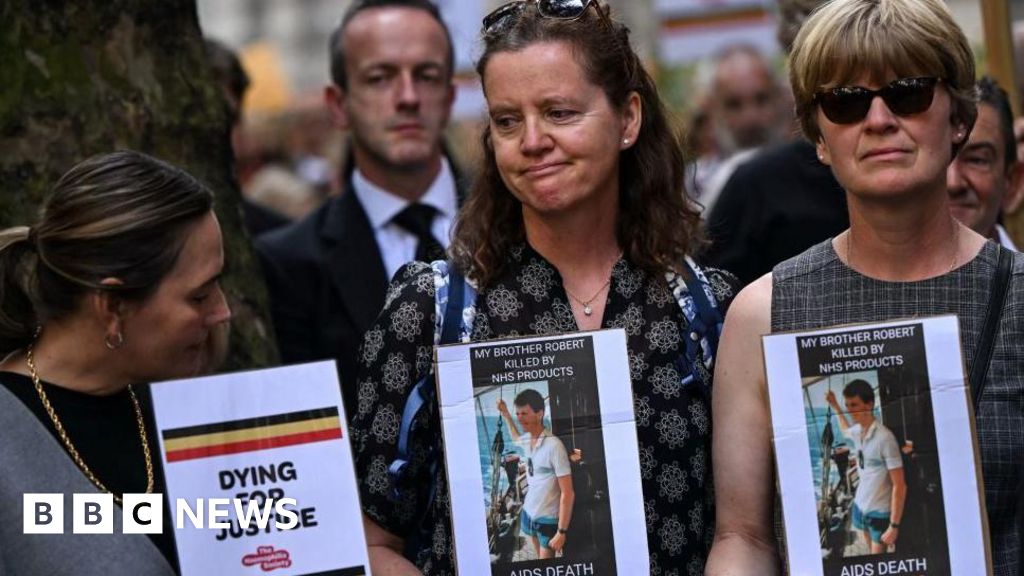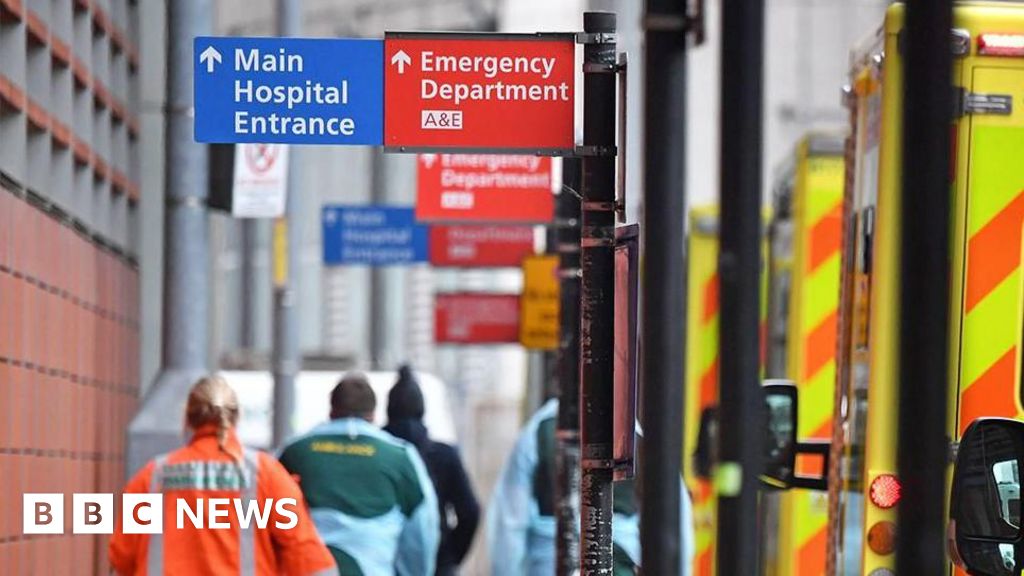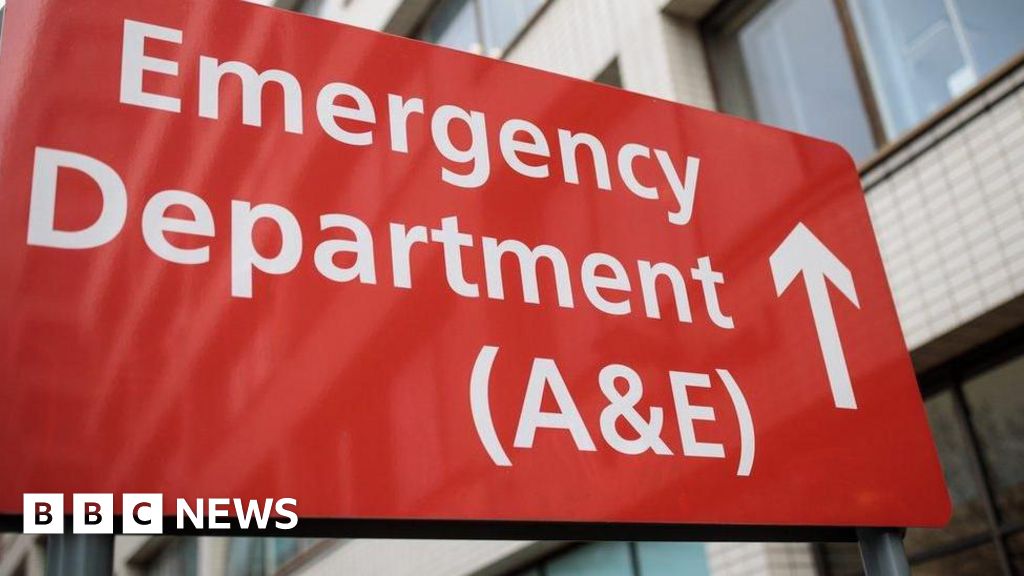
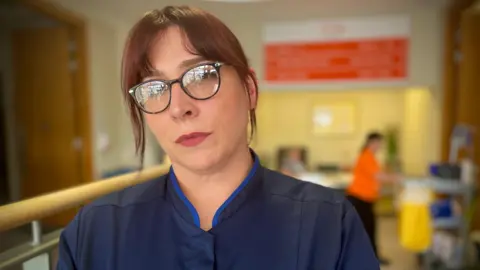 BBC News
BBC News
Kristy Clayton said plans for cuts at facilities in the Midlands are 'heartbreaking'
Five hospices caring for terminally ill people have planned job cuts in the past two months due to financial pressures, BBC News has learned.
St Giles Hospice, which runs community services and in-patient sites in the West Midlands, has started consulting staff this week on a reduction of 40 posts, including clinical roles, which could involve redundancies.
The organisation representing the sector, Hospice UK, has warned of a funding crisis and further cuts in services.
It says government must provide urgent cash investment.
The Department of Health and Social Care acknowledged there were challenges that would "take time to fix".
A combination of factors, including energy bills, higher wage costs and limited NHS funding, is being blamed.
St Giles has an annual budget of £10m, with 350 staff, more than three-quarters of whom are in clinical positions.
Five years ago, NHS funding covered about 25% of costs - but this has fallen to 17.7%.
Fewer patients
The management says contracts with local health boards have often been below inflation, so the NHS share of the overall budget has dropped.
St Giles is expecting a deficit of £1.6m this financial year.
Previous annual shortfalls have been covered by drawing from reserves but the management has decided reductions in services are now required to stabilise the finances.
As well as the 40 job losses, the consultation with staff warns the number of beds across the hospices two sites will be cut from 23 to 15, meaning fewer patients will receive care.
"Its incredibly difficult," clinical-services director Kristy Clayton says.
"I have 23 beds on this unit, which I could easily fill twice over, but I can't afford to do that.
"I need to make decisions and work with my teams to find who can prioritise access to those beds and how many staff I have around me.
"As a nurse and specialist palliative care professional for a number of years, these are incredibly heartbreaking and difficult decisions to make”.
Hospices are charities that care for people from a terminal diagnosis to the end of their life, which could be weeks or many months, either:
- in their own home, with medical staff visiting when required
- in a hospice, which will aim to provide care tailored to individual needs in a calmer atmosphere than a busy hospital
Palliative care involves making patients as comfortable as possible and managing pain relief.
'Really helped'
Senior hospice nurse and qualified prescriber Claire Maycock has travelled to the home of Tracey, 37, who has advanced cancer.
Her diagnosis was in July and they discuss pain relief and what other help might be available.
"When I got diagnosed, it was a shock," Tracey says.
"I didn’t know who to turn to.
"When St Giles came in, they went through everything.
"It was wonderful – they really helped me."

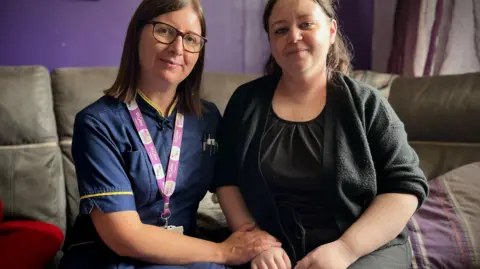 BBC News
BBC News
Claire (L) with Tracey, who has advanced cancer
'Very unnerving'
As Ms Maycock drives to her next visit, she tells me she moved from an NHS post to a "nice" role and with "lovely" colleagues at the hospice.
But she is worried about the cutbacks.
“It's very unnerving and unsettling for all staff," Ms Maycock says.
"Everybody is worried about jobs - but fundamentally we are all worried about what that means to our patients.
"There's more need for our service - but we are looking at having fewer staff and struggling to get to see patients, with the lack of funding we are getting."
Pay increase
Hospice UK says the system of funding for this sort of care is “chaotic” and needs “long-term fixing”.
Contracts with health boards to provide palliative care can vary considerably in different areas.
On average, state funding is about a third of total budgets, with the rest coming from donations and money raised through charity shops and other fundraising.
Most hospices pay staff in line with equivalent NHS roles but have struggled to match the 5% pay increase awarded in England last year.
'Absolute scandal'
Hospice UK says £60m of financial help is needed from the government to cover the pay rise in England - but there has been no response to requests for support.
The Welsh government set aside £4m for hospices to afford wage increases.
The Scottish government is in detailed negotiations with the sector.
And there is a similar dialogue in Northern Ireland.
Hospice UK chief executive Toby Porter said if services were cut, some patients would end up going to GPs and hospitals instead.
"Its an absolute scandal to see hospice services taken away from communities because there isn’t enough money," he said.
"It doesn’t take much to preserve them - the sums we are talking about are miniscule compared to what the NHS spends."
A Department of Health and Social Care spokesperson said: "This government has inherited huge challenges in the hospice sector, as well as a £22 billion black hole in the public finances, so these problems will take time to fix.
"Hospices provide vital, compassionate care for people facing the end of their lives, and invaluable support to their families. We want everyone to have access to high-quality end of life care.
"This government is determined to shift more healthcare out of hospitals and into the community, to ensure patients and their families receive personalised care in the most appropriate setting."

 3 months ago
15
3 months ago
15



